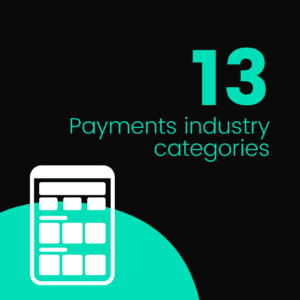

Unveiled: Key Financial Crime 360 findings
A deep dive into the Financial Crime 360 survey, highlighting key challenges, prevalent fraud types, and strategic responses across various financial sectors

What is this article about?
An analysis of the perceptions and priorities of payment industry leaders like C-level/founders, directors and managers based on a PAY360 conference survey.
Why is it important?
It offers guidance on navigating current trends and future changes in the payments sector.
What’s next?
The series will provide targeted insights and strategies to help stakeholders effectively respond to evolving market demands.
In an industry as dynamic as the payments sector, understanding the evolving landscape is crucial for staying ahead. The Payments Association (TPA) recently compiled fresh insights from nearly 6,000 pre-registrants for its upcoming PAY360 conference, providing a unique glimpse into the collective mindset of the industry’s leaders. This article, the second in its series, delves into the perceptions and priorities of three distinct personas within the payments field: c-level/founders, VIP/director/heads, and managers. By dissecting their biggest challenges, opportunities ahead, and topics of interest, this article aims to uncover strategic insights that can guide industry stakeholders in navigating the future of payments.



As we explore the insights from the C-Level/Founders, who made up 1,393 of the respondents, we observe a focused concern on several pivotal challenges and opportunities shaping the payment industry’s future.
Regulatory compliance: 17.47% of respondents noted compliance with new regulation and policy as a primary challenge for C-level executives and founders. This concern highlights the increasing complexity of global regulatory environments and the pressure on top executives to navigate these changes adeptly.
Implementing new payment methods: With 21.18% indicating this as a key challenge, there is a clear emphasis on integrating innovative payment solutions. This reflects the rapid evolution of consumer payment preferences and the technological advancements driving the market.
Understanding customer needs: Not far behind, with 18.27% of C-level/founders concerned about understanding customer desires, this challenge underscores the importance of customer-centric strategies in driving business growth.
Digital transformation: Keeping up with digital transformation was noted by 14.16%, showing a significant push towards modernising operations to stay competitive.
Artificial intelligence (AI): AI tops the opportunities list for C-level/founders, with 23.17% viewing it as the most significant. Adopting AI technologies is seen as a way to enhance decision-making, streamline operations, and personalise customer interactions.
Cross-border payments: At 18.52%, the focus on cross-border payments indicates a strategic push to expand global reach and capitalise on international market opportunities.
Digital currencies and open banking: These areas also emerge as critical, with 13.58% and 12.25%, respectively, pointing towards a shift in how businesses and consumers interact financially.
The top interests among C-level/founders are reflective of the areas where they anticipate the most impactful developments:
Open banking (18.68%): This topic leads, suggesting a strong interest in leveraging new banking frameworks to foster innovation and enhance service offerings.
Cross-border transactions (17.82%): Highlighting the importance of managing and optimising international payment operations.
Digital currencies (16.13%): With the rise of cryptocurrencies and digital assets, there is an increasing curiosity and readiness to integrate them into mainstream finance.








The VIP/director/head group, consisting of 2,003 respondents, presents insights highlighting senior management’s strategic and operational focuses within the payments industry.
Regulatory compliance: 17.86% of respondents indicated a significant concern about compliance with new regulations and policies. This challenge underscores the ongoing need for adaptability in a constantly evolving regulatory landscape.
Digital transformation: Keeping up with digital transformation is perceived as a crucial challenge by 19.09% of the respondents, slightly higher than other groups, reflecting the critical role of technology in shaping future business strategies.
Implementing new payment methods: With 18.94% citing this as a major challenge, it’s clear that integrating emerging payment technologies remains a top priority for staying competitive and meeting consumer demands.
Understanding customer needs: At 17.63%, understanding what the customer wants continues to be a pivotal focus, driving efforts to tailor products and services that resonate with end-users.
Artificial intelligence (AI): AI remains a prominent opportunity, identified by 23.52% of VIPs/directors/heads. The emphasis on AI reflects its potential to revolutionise aspects from fraud detection to customer service enhancements.
Connected and/or embedded commerce: This group shows a stronger interest in connected and embedded commerce, with 13.90% highlighting it as a key opportunity, suggesting a move towards more integrated and user-centric payment solutions.
Real-time payments: With 14.80% seeing it as an opportunity, the focus on real-time payments indicates an understanding of the demand for immediacy and transparency in transactions.
The interests of VIPs/directors/heads are strategically aligned with the anticipated regulatory and technological shifts:
Open banking (18.75%): Leading the topics of interest, open banking is viewed as a pivotal area for driving innovation and creating new revenue streams.
Cross-border transactions (17.07%): Reflecting the global outlook of senior management, the interest in optimising cross-border operations is evident.
Digital currencies (15.65%): Interest in digital currencies remains robust, underscoring the sector’s readiness to engage with these new forms of value.








The Managers group, represented by 1,577 survey respondents, provides a unique perspective that blends operational insight with tactical challenges and opportunities in the payments industry.
Implementing new payment methods: This is identified as the most pressing challenge by 20.14% of the managers, emphasising the operational difficulties in adapting to and integrating emerging payment technologies.
Digital transformation: Slightly more concerned than other groups, 20.44% of managers consider digital transformation a critical challenge. This focus highlights the direct responsibility managers carry in executing and overseeing technology integration within their teams.
Understanding customer needs: At 17.22%, this remains a significant concern, illustrating the direct connection managers maintain with customer feedback and market demands.
Regulatory compliance: Although significant at 12.99%, it is less emphasised than at higher executive levels, possibly reflecting their more focused role on internal operations rather than broader strategic compliance issues.
Artificial intelligence (AI): 24.48% of managers see AI as the biggest opportunity, the highest among all personas. This indicates a strong belief in the operational efficiencies and capabilities AI can bring to their workflows.
Cross-border payments: With 19.47% viewing it as a major opportunity, managers recognise the potential for growth and expansion in facilitating international transactions.
Open banking: At 15.04%, interest in open banking is substantial but slightly less than in other senior roles. This is likely due to its strategic implications, which may be more distant from day-to-day managerial duties.
The topics that garner the most interest from managers are closely aligned with areas where they see the greatest impact on their roles:
Open banking (18.29%): Despite being less than other groups, it still marks a significant interest area, reflecting the practical implications of regulatory changes and new technology platforms.
Cross-border transactions (16.97%): Managers are keen on understanding and improving processes that facilitate cross-border payments, likely due to the operational challenges associated with these transactions.
Digital currencies (15.58%): Reflecting an interest in emerging trends that could influence their business operations directly.
Pre-registrants of PAY360 have identified several strategic priorities for payment leaders across different roles. These include regulatory compliance, digital transformation, and understanding customer needs. C-level executives, founders, VIPs, directors, heads of departments, and managers all face these core challenges.
Investment in regulatory technology is highlighted as a means to improve compliance processes. Additionally, there is an emphasis on accelerating digital initiatives using cloud technologies to integrate innovative payment solutions.
Artificial intelligence is noted for its potential in various applications ranging from strategic decision-making at the executive level to enhancing operational efficiencies at the managerial level. The findings suggest that adapting AI strategies to meet different organisational needs could optimise its benefits.
The importance of expanding global operations through efficient and secure cross-border payments is underscored, pointing to the development of robust partnerships and technologies as crucial steps. There is also a mention of the potential benefits of embracing open banking and exploring opportunities in digital currencies for organisations aiming to innovate and maintain competitiveness.
Future editions of this series will delve deeper into the PAY360 survey findings, examining the impacts and strategies across various sectors of the payments industry. Additionally, these findings will provide targeted insights tailored to different industry sub-categories, aiming to furnish each audience segment with the strategic knowledge required to respond effectively to the evolving demands of the payments ecosystem.


A deep dive into the Financial Crime 360 survey, highlighting key challenges, prevalent fraud types, and strategic responses across various financial sectors


CEOs discuss top challenges and priorities in a Payments Lab roundtable, focusing on technology, fraud prevention, and regulatory compliance.


The financial struggles of UK adults highlight the vital role and challenges of community finance institutions in promoting financial inclusion.














Log in to access complimentary passes or discounts and access exclusive content as part of your membership. An auto-login link will be sent directly to your email.


We use an auto-login link to ensure optimum security for your members hub. Simply enter your professional work e-mail address into the input area and you’ll receive a link to directly access your account.
Instead of using passwords, we e-mail you a link to log in to the site. This allows us to automatically verify you and apply member benefits based on your e-mail domain name.
Please click the button below which relates to the issue you’re having.
Sometimes our e-mails end up in spam. Make sure to check your spam folder for e-mails from The Payments Association
Most modern e-mail clients now separate e-mails into different tabs. For example, Outlook has an “Other” tab, and Gmail has tabs for different types of e-mails, such as promotional.
For security reasons the link will expire after 60 minutes. Try submitting the login form again and wait a few seconds for the e-mail to arrive.
The link will only work one time – once it’s been clicked, the link won’t log you in again. Instead, you’ll need to go back to the login screen and generate a new link.
Make sure you’re clicking the link on the most recent e-mail that’s been sent to you. We recommend deleting the e-mail once you’ve clicked the link.
Some security systems will automatically click on links in e-mails to check for phishing, malware, viruses and other malicious threats. If these have been clicked, it won’t work when you try to click on the link.
For security reasons, e-mail address changes can only be complete by your Member Engagement Manager. Please contact the team directly for further help.